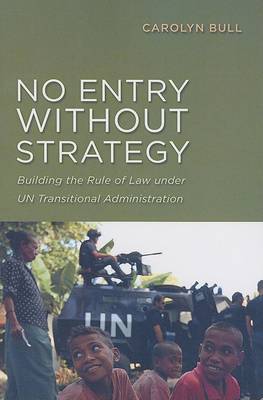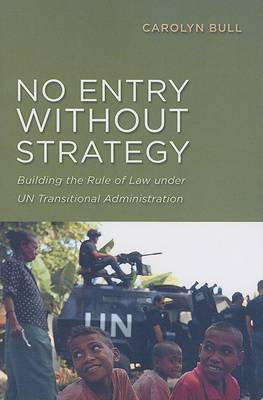
- Afhalen na 1 uur in een winkel met voorraad
- Gratis thuislevering in België vanaf € 30
- Ruim aanbod met 7 miljoen producten
- Afhalen na 1 uur in een winkel met voorraad
- Gratis thuislevering in België vanaf € 30
- Ruim aanbod met 7 miljoen producten
No Entry Without Strategy
Building the Rule of Law Under UN Transitional Administration
Carolyn BullOmschrijving
For international actors seeking to consolidate peace and democracy in disrupted states, establishing the rule of law has proven frustratingly elusive. UN peace operations have struggled to ensure lasting security against violence and to build legitimate structures to redress disputes peacefully. It has been even harder to instill principles of governance that promote accountability to the law, protect against abuse, and generate trust in the state. In championing such goals, UN state-building missions have pitched against the odds. Beyond the complicated tasks of reforming laws, judiciaries, and police forces, UN officials have confronted a fundamental dilemma: if embedding the rule of law rests on complex political and social transformations regarding conflict, power, and the state, can external actors make a difference? This book investigates the challenges faced by UN transitional administrations in establishing the rule of law in Cambodia, Kosovo, and East Timor. It explores conceptual understandings of the UN's state-building agenda and speaks to broader questions about the role of external actors in disrupted states.
Specificaties
Betrokkenen
- Auteur(s):
- Uitgeverij:
Inhoud
- Aantal bladzijden:
- 360
- Taal:
- Engels
Eigenschappen
- Productcode (EAN):
- 9789280811513
- Verschijningsdatum:
- 30/04/2008
- Uitvoering:
- Paperback
- Formaat:
- Trade paperback (VS)
- Afmetingen:
- 152 mm x 229 mm
- Gewicht:
- 495 g

Alleen bij Standaard Boekhandel
Beoordelingen
We publiceren alleen reviews die voldoen aan de voorwaarden voor reviews. Bekijk onze voorwaarden voor reviews.











